I am trying to run by junit5 tests from a test suite. however Im getting an error
import org.junit.platform.runner.JUnitPlatform;
import org.junit.platform.suite.api.SelectClasses;
import org.junit.runner.RunWith;
import com.test.studentservice.controllers.StudentControllerTest2;
import com.test.studentservice.repo.StudentServiceRepoDataTest;
import com.test.studentservice.service.StudentServiceTest;
@RunWith(JUnitPlatform.class)
@SelectClasses({StudentControllerTest2.class, StudentServiceRepoDataTest.class, StudentServiceTest.class})
public class StudentServiceTestSuite {
}
This is the error I'm getting:

Thanks